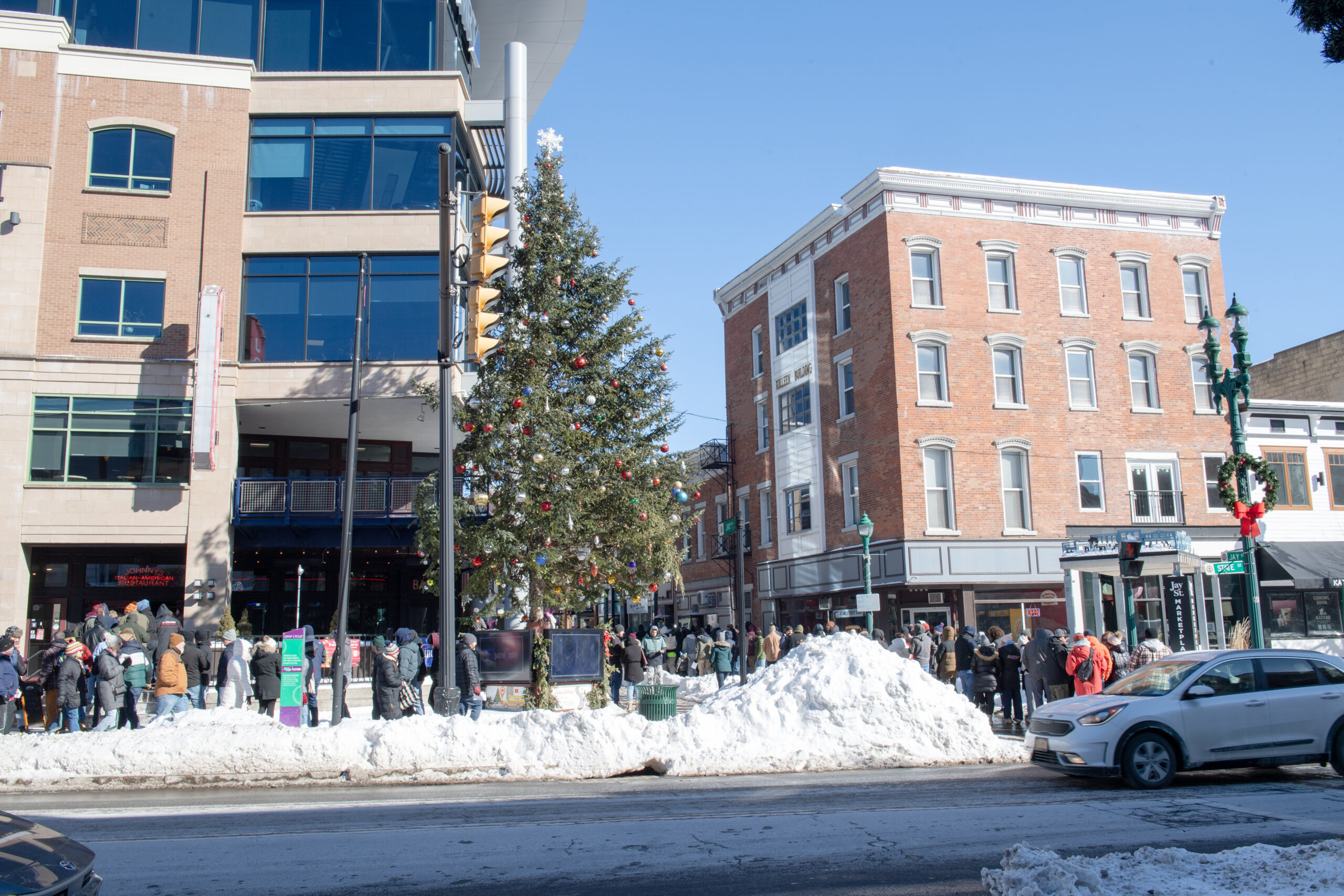Photography by Megan Mumford
This story is part of our annual Capital Region Gives Back initiative that honors 10 locals who are making our community a better place. Read up on all of the 2025 honorees and join us on December 2 for the 7th annual Capital Region Gives Back event at Putnam Place.
Hillary Gaeta’s path to Grafton’s Soul Fire Farm began when her family moved from the Dominican Republic, where she grew up climbing trees to snack on mangoes and cherries, to Queens, NY, where her family relied on programs like SNAP, the US Department of Agriculture’s Supplemental Nutrition Assistance Program.
“I was feeling disconnected from my land, from my language,” she says. “So even though I took a roundabout way to get to the food justice movement, I’ve always had a lived experience with this type of work.”
Now, Gaeta serves as the co-executive director of operations at Soul Fire Farm, an Afro-Indigenous centered community farm and training center that’s dedicated to “uprooting” racism and “seeding” food sovereignty. Soul Fire’s mission is four-fold: take care of the land, feed the community, equip the next generation of black and brown farmers, and mobilize the public to create a food system they feel a part of.
“The fact that we have communities that don’t have access to fresh, culturally appropriate food is what we mean when we talk about food apartheid,” Gaeta says. “You might have heard of a food desert, but a desert is naturally occurring, and this is definitely not. It’s something that’s a product of redlining and systemic racism—problems that have structured communities in such a way that your zip code can have an impact on your life expectancy because there’s not transportation to get to a supermarket.”
The founders of Soul Fire Farm recognized that there were communities in the 518 living under food apartheid and set out to do something about it. Now, Soul Fire uses Afro-indigenous farming practices to grow food that’s distributed back into the community, runs programs that teach future farmers ancestral techniques that will enable them to grow their own food, and spreads the word about food and land sovereignty in the community.
“We always say at the farm that we’re not trying to scale up, we’re trying to scale out,” Gaeta says. “People are coming here, they’re being equipped with these resources, and then they’re bringing them back into their own community.”







